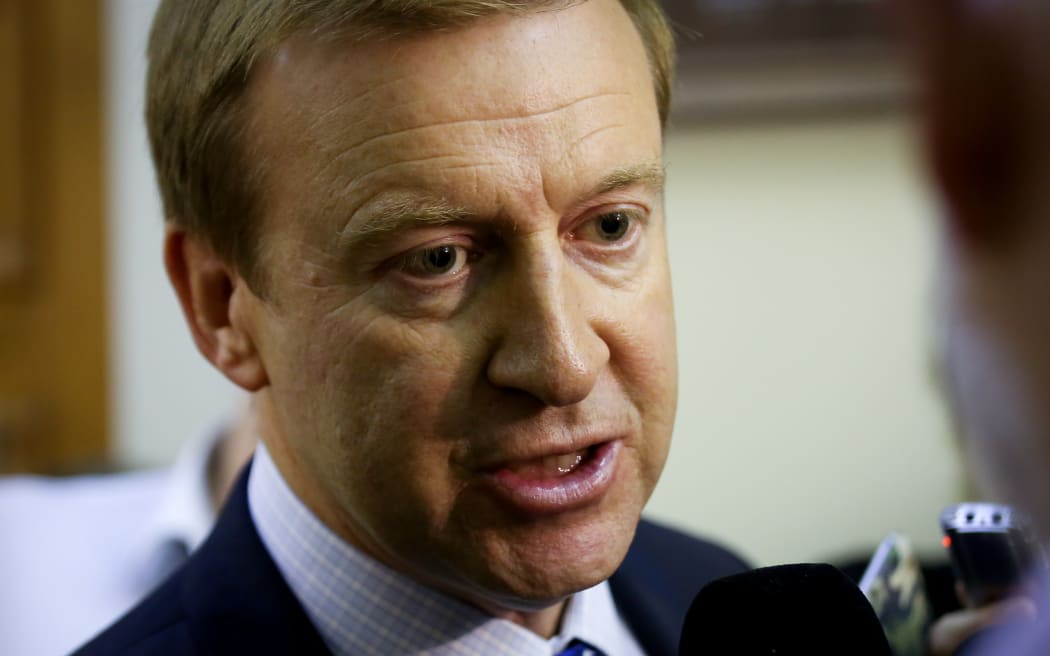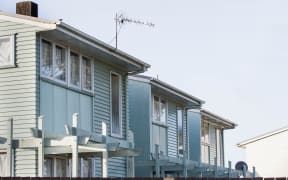A long-awaited commitment to national bowel cancer screening is welcome but the planned age restriction risks "continued unnecessary deaths", a lobby group says.

Health Minister Jonathan Coleman Photo: RNZ / Alexander Robertson
The government announced in the Budget yesterday it would spend $39 million over four years on extending screening nationwide.
Screening has been under way since 2012 under a pilot programme in Waitematā, but next year would also begin in Hutt Valley and Wairarapa.
Health Minister Jonathan Coleman said a business case was yet to go to Cabinet but all remaining 17 district health boards would have screening by the end of 2019.
He said DHBs had been working hard, and the workforce was now in place to begin a staged rollout - an approach he said was normal worldwide.
"It's a very practical rollout that makes sure we've got all the elements in place to deliver a screening programme that will produce the best results for the population.
"And look, I can absolutely understand that people want to see this rolled out as quickly as possible but this is the best possible timetable."
Dr Coleman also defended the decision to limit screening to those aged between 60 and 74, whereas screening under the Waitematā pilot had been for ages 50 to 74.
"More than 80 percent of cancers found through the pilot were in those aged 60 to 74. Screening in this range will maximise the number of cancers found while minimising the cases where problems are not found."
Bowel Cancer New Zealand said it was delighted screening would be going ahead, after many years of pushing.
Spokeswoman Sarah Derrett however, said it should happen from age 50.
"We're struggling to see the cost effectiveness in that decision," she said.
"We're risking continued unnecessary deaths in people at the prime of their working lives, 50 to 59, makes no sense whatsoever to Bowel Cancer New Zealand."
She also said a clear plan was needed for spelling out when the rest of the country could expect screening to reach them.
"We remain very concerned though about the restricted age group and the lack of definite plan to rolling out to the other 17 DHB regions.
"We should not have access to screening dependent on your living in Waitematā, Hutt or Wairarapa."
Cancer Society chief executive Claire Austin said the organisation was delighted about the development, which it has been pushing for over seven years.
"And if it means a staged rollout, then it's better to do it well in a staged rollout than to do it - roll it out - straightaway and have lots of gaps and problems in the implementation."
Labour Party health spokeswoman Annette King said she was also pleased to see national screening getting closer.
"But I am puzzled as to why you wouldn't start where the highest incidence and the highest death rates for bowel cancer is in New Zealand, that is in the southern part of the South Island. And also very high in the Waikato."
She said more detail was needed from the government.
"What districts are they going to roll it out in, what is the workforce, how is it going to be done? Because it would be very disappointing to set up expectations around New Zealand only to have them dashed because the actual work in terms of a rollout hasn't been completed."
A Ministry of Health email to members of the National Bowel Cancer Working Group, obtained by RNZ News, said Hutt Valley and Wairarapa would begin screening in the middle of next year.
It said Waitematā would move to screening people aged between 60 to 74.
"It is expected that nine DHBs will begin screening in 2018, and the remaining eight in 2019. The order in which DHBs will join the rollout will be finalised after DHBs confirm their readiness.
"DHBs have worked hard to reduce waiting times for publicly funded colonoscopies and improve the quality and efficiency of colonoscopy services.
"While there are still challenges ahead, a national bowel screening programme will build on this progress and deliver improved bowel cancer detection to more New Zealanders."
Dr Coleman said about 700 lives a year could be saved once screening was under way nationally.
Budget 2016: Read RNZ's full coverage here.





